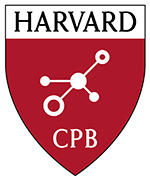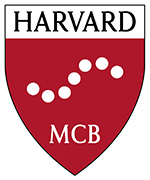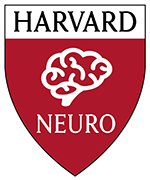Each year, the university-wide Hoopes Prize honors undergraduate students for their outstanding thesis work. Five students from concentrations administered by the MCB department—Yi Hua Chen (CPB ’20), Michael Gao (CPB ’20), Tessa Han (MCB & Statistics ’20), Allison Kao (Neuro ’20), and Alex Ren (Neuro ‘20)—are among this year’s Hoopes Prize Winners, along with Chemistry concentrator William Gao (‘20) who conducted his thesis research in an MCB lab.
“The thesis project was a real labor of love. The long hours, the countless failed experiments, the absurd number of pipettes–it all adds up to a stressful yet rewarding journey,” Ren says. “When I finally clicked on the ‘Send’ button, it felt unreal to think that I had submitted my first independent research project. Winning a Hoopes Prize is an enormous honor and a true testament to the invaluable support I received from my lab.”
Candidates for the Hoopes Prize are nominated by faculty and chosen based on the thesis readers’ official comments. The Hoopes Prize Fund awards $5,000 to each student who authors a winning thesis and $2,000 to each faculty member who nominated a winning thesis. In typical years, a copy of each winning thesis is bound and put on display at the Lamont Library for two years, and a second copy is added to the University Archives permanently.
Reflecting on her thesis experience, Chen says that finishing up her thesis is a huge accomplishment but also bittersweet. “On the one hand, it’s honestly the first time in a while where I felt truly proud of the work I produced,” Chen says. “However, I think any piece of text such as a thesis doesn’t fully capture the days and nights of watching the sun rise and set from the top floor of Northwest Labs. Even less well captured in the text is just how much fun the experience was! As I enter grad school, I’ll really miss playing foosball and ping pong with the Murray Lab as we ponder the reasoning behind yet another failed experiment. It’s been a blast being part of such an intellectually rigorous, but fun and lighthearted community.”
The MCB department would like to offer a heartfelt congratulations to all of these Hoopes Prize winners!
Each of these students expressed gratitude to the MCB, CPB, and Neuroscience communities. Details on each recipient are below.

Yi Hua Chen
Chen’s thesis, called “Investigating the Role of the G1 Phase of the Cell Cycle in the Maintenance of Genomic Integrity in S. cerevisiae,” was conducted in the Murray Lab.
“I am forever grateful to Professor Andrew Murray, who truly changed my life academically and personally,” Chen says. “Initially, I felt intimidated by Harvard because professors often feel like larger than life characters…It’s clear that Andrew cares deeply about training and mentoring the next generation of scientists and he motivates me to continue on his legacy of building the vibrant scientific community that he leads. I’d also like to thank my direct supervisors, Marco Fumasoni and Sriram Srikant. I went from barely being able to pronounce Saccharomyces cerevisiae in my freshman year to producing a senior thesis based on yeast genetics. I really couldn’t have done it without them.”
“I also just wanted to mention that I was so impressed by the time and care that my thesis reviewers took to read all 115 pages of my thesis,” she continues. “It really shows how dedicated the faculty in MCB are to undergraduate research.”
Chen also has a few words of encouragement for younger students who are embarking on their thesis journeys. “The award really came to me as a surprise,” she says. “Yes, I worked really hard on my thesis, but I didn’t expect to get rewarded for it. I was just having fun heat shocking yeast and chatting with my labmates about how crazy biology is. I hope that younger students won’t see their theses as daunting pieces of work required for honors. Yes, it is hard work, but you’ll learn so much intellectually and personally from it, while (hopefully) having fun along the way!”
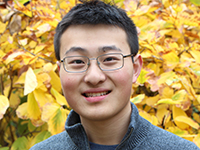
Michael Gao
Michael Gao conducted his thesis, titled “Investigating RNA Structure in Translation: A Functional and Biochemical Characterization of the CaMK2α Internal Ribosome Entry Site,” in the D’Souza Lab.
“In reflecting on my senior thesis experience, I would like to thank everyone in the D’Souza Lab for being so kind and helpful and for creating such a nurturing environment for an undergraduate like me,” Gao says. “Being in the D’Souza Lab for the past three years has been a wonderful and truly defining part of my college experience. I am also thankful for all the guidance I’ve received from many others in the MCB community.”
“I am particularly grateful to Professor Victoria D’Souza and Vincent Pham, my graduate student mentor in the lab,” he adds. “They were so supportive and encouraging at every turn, always ready to provide suggestions or advice, while also giving me the ample opportunity to try, fail, learn, and grow on my own during the scientific process. I have grown so much as a scientist and person under their mentorship.”
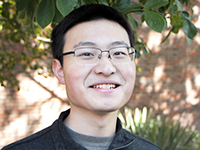
William Gao
Though William Gao is a Chemistry major, he conducted his thesis research in Elena Rivas’ lab in MCB. His thesis was titled “”Discovery and functional characterization of non-coding RNAs in eukaryotic genomes.”
“I was really interested in learning about computational biology and I found the Rivas Lab to be the perfect fit,” Gao says. “For me, it was easy doing a thesis in an MCB lab because the Chemistry department was very open to the idea.”
“To students also considering doing their thesis in a different department’s lab, my advice is to not worry too much about what department the lab is in, but rather whether its research interests you and whether you think it will be a supportive environment,” he adds. “When I declared Chemistry, I wouldn’t have imagined spending the next 3 years in a computational biology lab, but I am so happy that I have.”
He would like to thank Elena Rivas, along with the Eddy Lab, especially bioinformatics staff specialist Tom Jones for their support on his project.
“I have been amazed by how connected and close-knit the MCB community is,” Gao says. “Even though MCB has so many labs working in very different areas of biology, everyone is really open to working together. As a testament to this, my project involved a collaboration with the D’Souza and Denic Labs, which were both incredibly kind and helpful.”
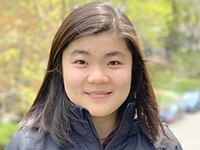
Tessa Han
Han did her thesis work in Giovanni Parmigiani’s lab at the Harvard T.H. Chan School of Public Health (HSPH). Her project’s title was: “Applying Mediation Analysis to Predict Feed Forward Loops as Gene Regulatory Mechanisms in Multiple Myeloma: A Novel Statistical Approach”
“The prize is recognition of this collective community that steadfastly supported and nurtured me throughout the program,” Han says. “I am deeply grateful to my advisor, Prof. Giovanni Parmigiani, and direct supervisor, Dr. Mehmet Samur, for their invaluable guidance which is surpassed only by the care and attention they lavished upon me.”
She adds, “I am also deeply grateful to Dr. Dominic Mao, our MCB advisor, for watching over me throughout the program and for never failing to point me to the right path, and to the MCB community. The exemplary teaching, rigorous pursuit of scholarship, and exceptional guidance and mentoring played a pivotal role in these formative years that culminated in the thesis.”

Allison Kao
Kao did her thesis research in the Sanes Lab, resulting in a project called “”A Single-Cell Atlas of the Peromyscus Retina: Evolution at the Cell-Type Level.”
“I am immensely grateful to my PI, Dr. Sanes, for his dedication to mentorship and words of encouragement over the years,” Kao says. “I feel fortunate to have had such a supportive scientific role model to look up to! I also want to thank the many members of the Sanes Lab for fostering a wonderful lab community and training me along the way.”
She adds, “The neuroscience undergraduate community was my home base at college, and I’ve met some of my closest friends through the concentration. Dr. Magnotti and Dr. Draft are wonder-advisors and they truly care about the students —I attribute a large part of my positive academic experience to their tireless commitment.”
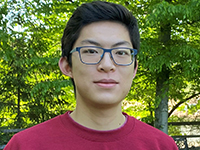
Alexander Ren
Ren’s thesis was titled “Modeling NaV1.7 Channelopathies Using Genetically Engineered Human iPSC-Derived Sensory Neurons,” and he carried out his experiments in Clifford Woolf’s lab at HMS.
“Firstly, I want to shout out my fellow thesis writers for overcoming such extraordinary circumstances in the process of completing their projects,” he says. “Writing a thesis is already no small task, but finishing it amidst a campus-wide eviction is truly an impressive feat. To the entire MCB community—In light of these uncertain times, I think we can all take a moment to be thankful for the people we have around us.”
“I’m very thankful to have been part of such a warm and accepting community,” Ren adds. “Over the years, Ryan and Laura have put an incredible amount of effort into bringing together the undergraduates. They succeeded in creating a tight-knit group out of Harvard’s largest science concentration…It’s especially reassuring to know that we can always depend on our big ol’ MCB family for help. Stay safe, everyone!”
by Diana Crow


